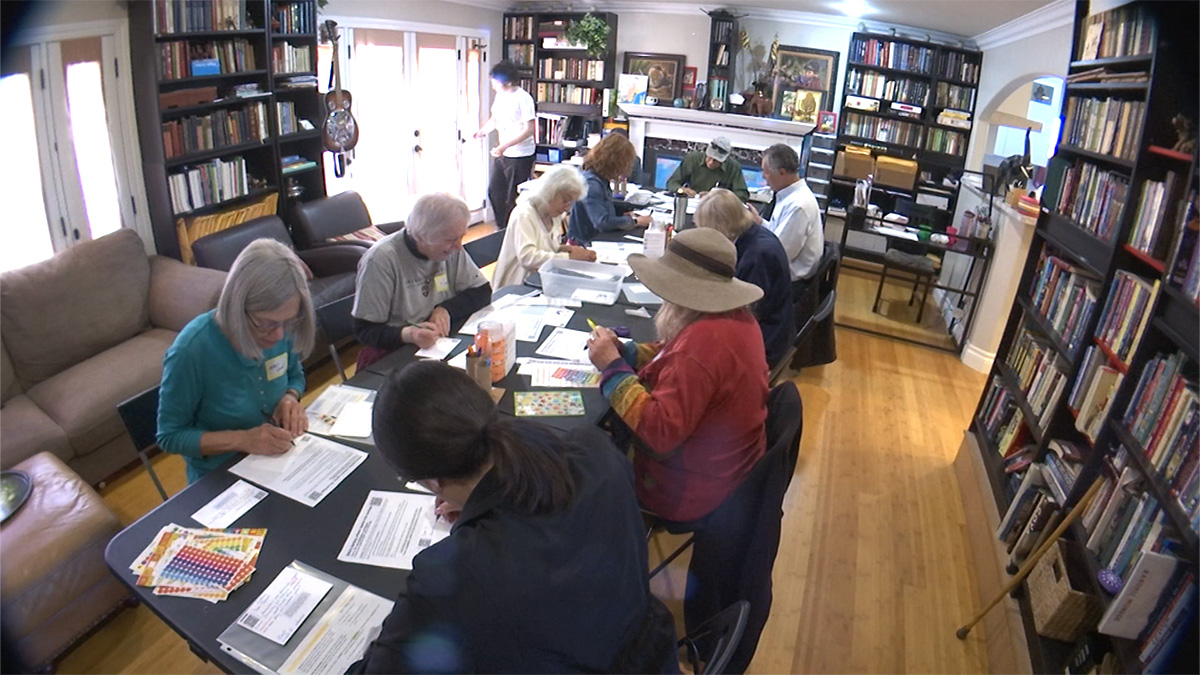The city of Martinez doesn't have to redraw its City Council district boundary lines, a Superior Court judge ruled Friday, but warned city lawyers they should be ready to do so quickly -- before the November general election -- should a Malibu attorney and his Martinez clients appeal Friday's ruling and win.
Contra Costa Superior Court Judge Charles Treat on Friday told attorneys for the City of Martinez and for residents Felix Sanchez and Nancy Noonan that while the election district map the City Council approved in February 2018 is "absurd" in its design to intentionally give each of the four districts a slice of the downtown area, he also said that doing so was legal at that point, according to state Election Code statute.
That specific statute, 21601, was amended in September 2019 by Assembly Bill 849, which strengthens criteria for city and county redistricting and adds protections against gerrymandering. Treat said in court Friday that he was hesitant to go against the City Council's approval of Martinez's election district map in general, and specifically because such map drawing -- Shenkman called it "gerrymandering" -- hadn't been expressly prohibited in the initial version of 21601, before the AB849 modifications.
Nevertheless, Treat acknowledged why the Martinez district map would be questioned. The districts give each of the four districts a part of downtown and of the waterfront. That created some anomalies, including two council members living a short distances from one another being in separate districts.
"It's about as uncompact and barely contiguous as geographically possible," said Treat, who also said the lines protect incumbents.
Martinez was among the first Bay Area cities to change from "at-large" City Council elections, in which residents from all parts of the city voted for all four council members, to a "district" system in which each of the four council members represent a specific district.
The change, approved in December 2017, was spurred by a letter from Malibu attorney Kevin Shenkman demanding the city make that change or face a lawsuit. He cited the California Voting Rights Act of 2001, which asserts local at-large voting systems are discriminatory if they "impair the ability of a protected class ... to elect candidates of its choice or otherwise influence the outcome of an election."
Local
The "protected class" discussed here is Latinos, whom Shenkman said had less voting influence than they would if districts acknowledged Latino neighborhoods and made it easier for Latino candidates to be elected.
But the Sanchez-Noonan lawsuit contends, among other things, that the way Martinez set up its districts "cracks the Latino community, dividing Latino voters nearly equally between each of the four districts."
Chris Skinnell, an attorney representing the city, said in court Friday that Martinez leaders were trying to consolidate various "communities of interest," and that making sure each district included some of downtown and the waterfront "was a legitimate thing for them to do."
Shenkman's office sent letters to numerous cities, school districts and other governmental agencies across California, seeking changes to district elections and threatening legal action if the changes weren't made. Many Bay Area cities, including Concord, Menlo Park, Fremont, Union City, South San Francisco, Antioch and San Rafael, subsequently made the switch. Usually that came in the form of a City Council resolution, but this coming Tuesday, voters in Sunnyvale and Santa Clara will decide whether to make that change.
Among the Bay Area school districts that subsequently made the change to district voting have been Mount Diablo Unified, San Ramon Valley Unified, Antioch Unified, Martinez Unified and Oakley Unified in Costa Contra County; and Dublin Unified, Fremont Unified and New Haven Unified in Alameda County.
Martinez, and all cities and agencies with district maps, will have to redraw those maps anyway within the next year or so, based on the results of the 2020 Census. Had Treat ordered the city to do that now, it would have meant three mapping processes for Martinez between 2017 and 2021.
Treat advised attorneys representing Martinez that scenario could still unfold, should Shenkman appeal Treat's ruling and win that appeal. Shenkman said Friday he will discuss with his clients a possible appeal.



